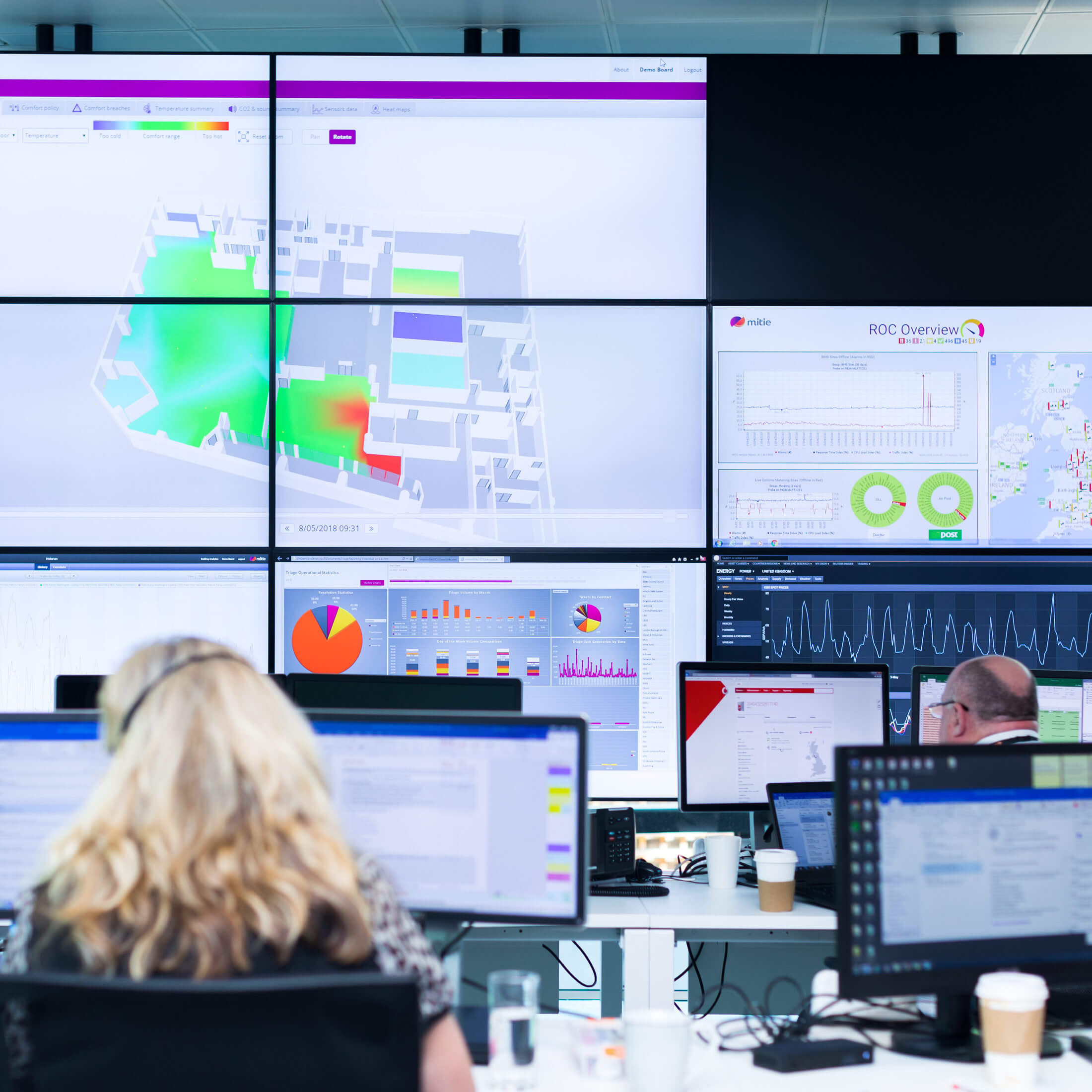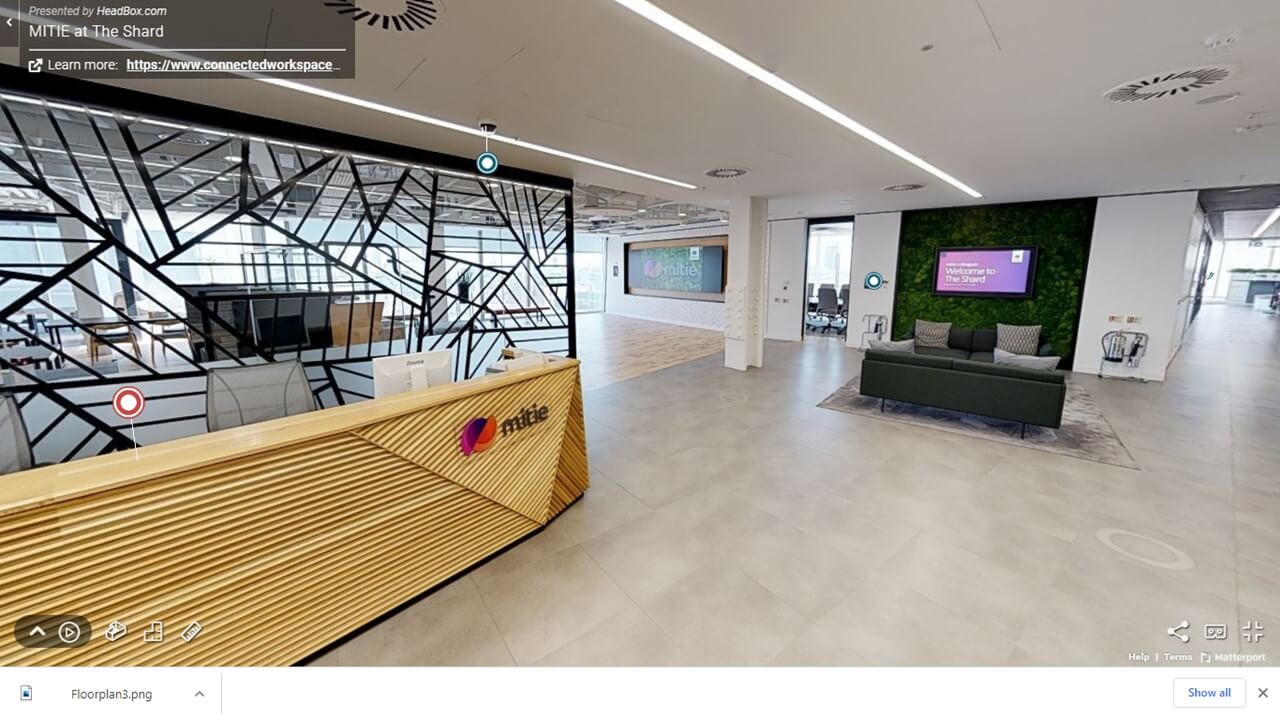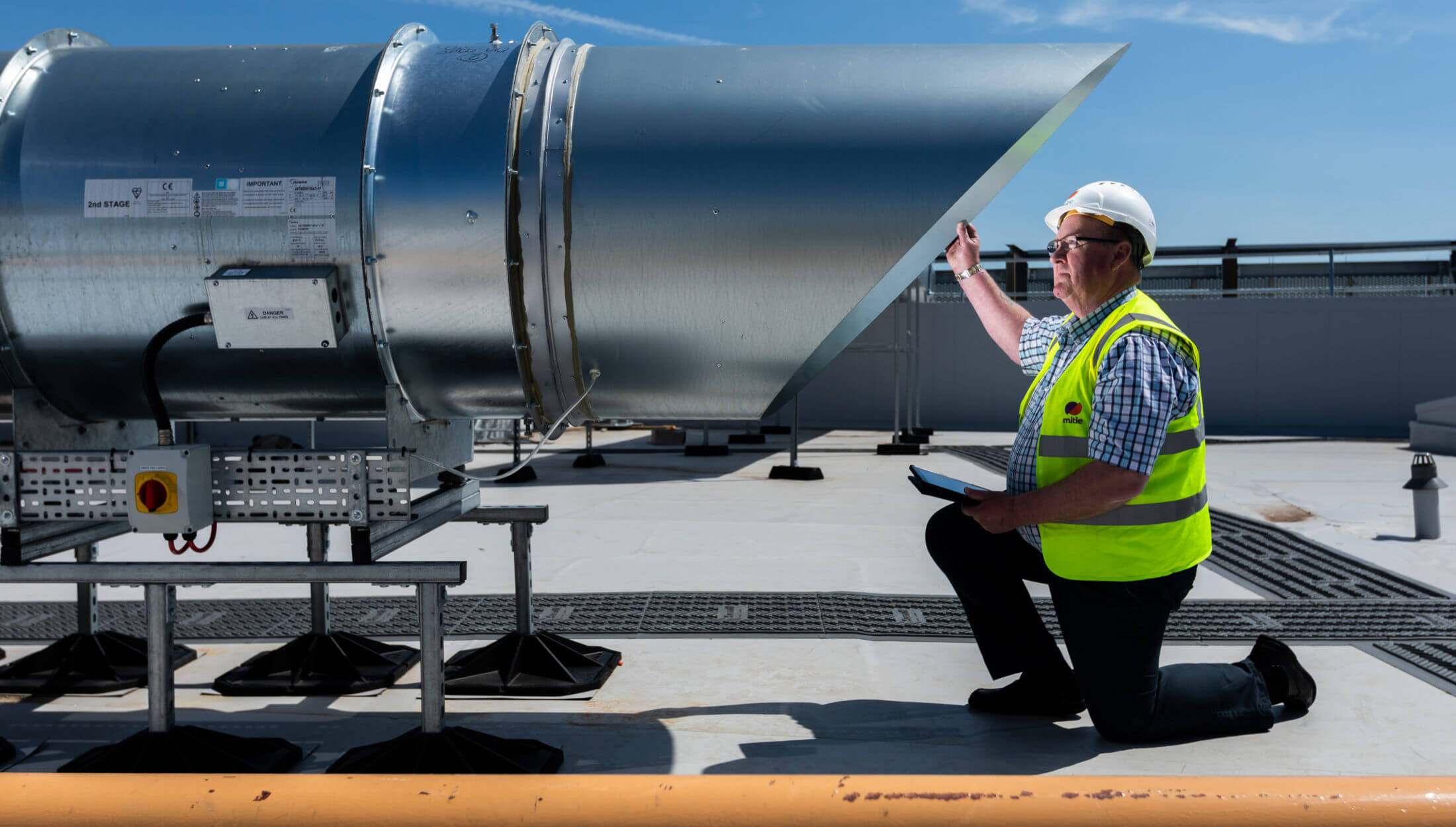Connected Workspace
Embracing digital transformation, Connected Workspace is the pioneering application of our consultancy, systems integration, and technology expertise to help you improve the performance of your buildings and the wellbeing and productivity of the people within them. We achieve this through automation, remote management, data analytics and machine learning.
Our Services
Connected Workspace is woven into the fabric of all our facilities management services. Data from building and energy systems, can be analysed in real time to identify inefficiencies and energy anomalies, detect trends, predict potential issues, reduce operational costs and improve the environments in which your people work.

0+
contracts are run through our Service Operation Centre today
0%
of businesses are embracing new technologies at various maturity levels
0%
believe getting more value from data in their facilities is a priority
0%
believe leveraging data to optimise asset performance is a priority
Market-leading technology
We have invested in market-leading technology services to unlock insights that offer you a new level of flexibility and control, helping you become exceptional at what you do best.
Your buildings and infrastructure assets generate vast amounts of valuable data every day regarding their performance and efficiency, and yet the majority of this intelligence remains untapped.
To unlock the value of this rich seam of actionable insight, Mitie has created a new Service Operation Centre that offers the technology, people and processes required to provide an advanced remote monitoring capability for our clients.
The Service Operation Centre represents an evolution of Mitie’s service delivery. It is built upon our proven, and long-established, Remote Operation Centre in Bracknell, and leverages our service desks in Manchester and Leeds. It is also the ‘engine room’ for our Monitoring as a Service solution.
The Service Operation Centre brings together a dedicated team of experienced engineers, subject matter experts, advanced processes and powerful analytics and diagnostics tools. These enable the delivery of industrialised and efficient predictive, preventive and remedial support for our client’s buildings, 24 hours a day, seven days a week.
Remote access to buildings systems enables the Service Operation Centre to identify issues as they happen and triage faults before engineers go on site.
In some instances, the Service Operation Centre can even rectify faults remotely by adjusting set points, initiating standby equipment or changing relevant Building Management System and/or equipment settings. Together these improve response times and first-time fix rates and reduce the need for site visits, which all serve to reduce outages and minimise disruption.
Benefits:
- Reduces costs by minimising or eliminating the need for disruptive site visits, particularly to remote or geographically dispersed sites
- Mitigates the risk of asset downtime by identifying, managing and preventing failures and outages
- Offers a single view of your facilities, assets, energy use and comfort policies
- Provides access to advanced asset analytics and actionable insight
- Ensures ‘right first time’ deployment of engineers to faults when a remote fix is not possible
- Optimises the performance of your assets by ensuring that they are in peak condition
- Unlocks cost efficiencies by extending the life of assets through predictive maintenance
Mozaic provides live facility management insight. It allows your client teams to make data-driven decisions by providing three key benefits:
- Visibility of all performance data in relation to the contract, in one place, in real-time.
- Insight that identifies workspace inefficiencies, trends, and potential issues.
- Response to identified insights and incidents. This includes a ticket-raising job management system to ensure the right people are allocated to the work, whether it’s cleaning up a spill or fixing faulty equipment.
Aria is our end user app and it is all about making things easier.
Aria allows workspace users to enjoy a smoother journey through their working day by providing the following key benefits:
- Dialogue between workspace users and building management. Users can log a fault with building equipment or report a workplace incident like a spill.
- Interaction between other colleagues and workspace users. For example, helping to locate colleagues that are hotdesking in a different part of the building.
- Engagement with location-based news and orientation, and notifications. These might include updates that your guests have arrived at reception, announcements that the fire alarm is about to be tested, or alerts that the coffee you ordered is ready to pick up from the office cafe.
A living, breathing Connected Workspace
Our Shard headquarters incorporates a swathe of intelligent devices and systems designed to maintain a healthy, productive and efficient working environment, establishing it as a showcase venue, right in the heart of London.
Take a virtual look around
Meet the Team

Simi Gandhi-Whitaker
Strategic Workplace and Technology DirectorHow can we help?
If you’re looking for more information, need to talk to someone about an enquiry or want to chat about your service needs, then you’ve come to the right place.
Please fill in our short form and a member of our team will be in touch.
If you have a supplier enquiry, please visit our dedicated portal on www.mitiesuppliers.com
Other Mitie Services
Projects
We offer self-delivered, end-to-end project services, from design and build through to commissioning. An experienced principal contractor, we manage and deliver a wide range of construction and refit work for our customers, right across the commercial, retail, industrial, social and domestic property sectors. Our in-house capabilities and specialist services include consultancy, design, construction, delivery, warranty management, project management and risk management.
Find out more
